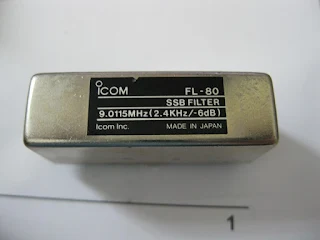This came up in the discussion of the Heathkit voltmeter being built on the Evil Mad Scientist blog (see our post on this from a few days ago). One commenter wrote:
If you ever look at a spool of solder-- one made for use in industry --it will have an expiration date. And that date always seems surprisingly soon, to us.
Here in Silicon Valley, we regularly purchase solder (including
flux-cored 60/40) that is discounted because it is sold after its
stamped expiration date-- sometimes as much as five years past. To us,
this is just "a good deal." We've had some spools work better than
others, and it would be very hard for us to *prove* that one is "bad"
because it's old.
None the less, the solder manufacturers are explicitly clear on the subject.
Kester, one of the most important manufacturers, says "Flux
cored solder wire has a limited shelf life determined by the alloy used
in the wire. For alloys containing more than 70% lead, the shelf life
is two years from date of manufacture. Other alloys have a shelf life
of three years from date of manufacture."
Source: http://www.kester.com/Portals/0/Knowledge_Base_Articles/Shelf_Life_Policy.pdf
Alpha, the manufacturer of the solder included with this kit, says of (at least one of their) flux-cored solders, "If >36 months from manufacture, please submit sample to Cookson Electronics Assembly Materials for testing."
Source: http://alphacpmd.com/~/media/Files/CooksonElectronics/TB-RELIACORE15-WRC-USAPE-SM334-9%20%2010-09-28.pdf
Our book: "SolderSmoke -- Global Adventures in Wireless Electronics" http://soldersmoke.com/book.htm Our coffee mugs, T-Shirts, bumper stickers: http://www.cafepress.com/SolderSmoke Our Book Store: http://astore.amazon.com/contracross-20







